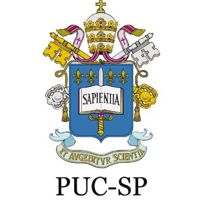O patrimônio espeleológico brasileiro é formado por um conjunto de bens materais e imateriais de inestimável valor natural e cultural, e a sua preservação é fundamental para garantir às gerações presentes e futuras um meio ambiente saudável. Até rescentemente, esse patrimônio ambiental gozava de proteção eficiente no direito material brasileiro, mas esse status foi profundamente alterado com a edição do Decreto n. 6.640/2008, que modificou a estrutura da nossa principal norma especificamente dirigida à tutela de cavernas: o Dec. n. 99.556/1990. Essa mudança visou a implantar, no âmbito infraconstitucional, um novo regime jurídico, que ameaça por em risco a integridade da maior parte das cavernas sitas em território nacional, e, por tal razão, clama por interpretações que miniminizem os resultados nocivos ao meio ambiente. Atendendo a esse chamado, este trabalho visou a analisar não apenas o decreto em questão, como, de uma forma geral, as normas brasileiras de direito material à disposição do aplicador do direito para a proteção das cavidades naturais subterrâneas. Para tanto, valeu-se do estudo da doutrina e da jurisprudência, bem como se utilizaram os métodos dedutivo, indutivo e analógico. Examinaram-se a Constituição Federal, as normas federais e especificamente destinadas à proteção do patrimônio espeleológico ou aquelas que, mesmo não tendo esse propósito específico, podem ser utilizadas em seu proveito, bem como algumas das principais normas estaduais voltadas à tutela de cavernas, sobretudo as previstas nas respectivas Constituições. Ao final, conseguiu-se percorrer significativo espectro do instrumental normativo nacional disponível à proteção do patrimônio espeleológico, e, especificamente no que diz respeito às alterações no Decreto n. 99.556/1990, evidenciou-se sua inconstitucionalidade formal, e, no que diz respeito ao conteúdo material do decreto, apresentou-se uma linha de interpretação que, tanto quanto possível, minimizasse as perdas ao meio ambiente, e mantivesse compatibilidade com a Constituição Federal
Brazilian speleological patrimony is formed by a set of material and immaterial goods of invaluable natural and cultural values, and it`s preservation is essential to guarantee to present and future generations a healthy environment. Until recently, this environmental patrimony benefited from an efficient protection from the Brazilian substantive law. Nevertheless, this condition has been profoundly changed by Decree n. 6.640/2008, which modified the structure of Decree n. 99.556/1990, our most effective cave protection rule. This change had the purpose of introducing a new legal framework, that jeopardizes the integrity of most part of caves located in national territory, and, for that reason, demands efficient interpretations in order to minimize the noxious impacts on the environment. Answering that call, this work aimed to analyze not only the Decree in case, but also, in a general way, the Brazilian substantive law available to protect the natural underground cavities. To achieve such goal, law doctrine, case law, as well as deductive, inductive and analogical reasoning has been used. Federal Constitution and Federal rules have been examined: either those rules designed especially to protect the speleological patrimony or those which are useful for cave protection despite not being issued for that very reason. Some of the main State cave protection rules, especially the ones based on States Constitutions, have also been seen. At the end, an expressive range of the national rules available to protect the speleological patrimony has been explored. Concerning specifically to the changes in the Decree n. 99.556/1990, it has been shown that they couldn t have been made by another decree, which consisted violation of the Brazilian Constitution. Regarding the substantive aspects of the changes, an interpretation track has been chosen in order to, as much as possible, minimize the environmental losses and keep compatibility with the Federal Constitution

